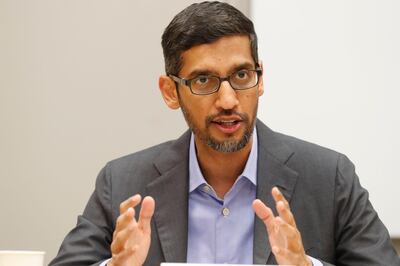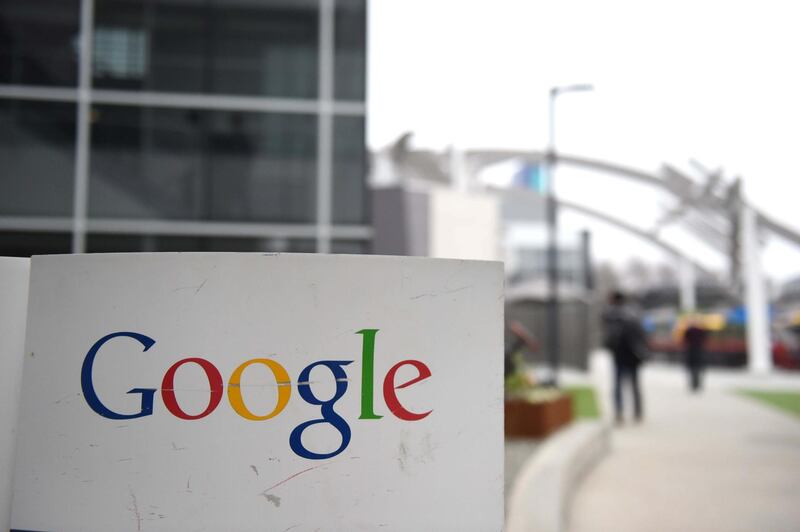Google extended the return of its staff to offices until September 2021, joining a growing number of companies across various industries that are extending flexible work options due to the Covid-19 pandemic.
Alphabet-owned Google was one of the first companies to switch to remote working in March as the pandemic spread around the world. It is the third time, it has delayed plans for employees to return to its offices. A Dubai-based spokeswoman for the company confirmed the latest decision to The National on Tuesday.
In May, the company said it would reopen most of its global offices on July 6 but that was pushed to January 2021 due to a surge in the number of cases and subsequently to June 30 next year before the latest decision.
Google is also considering implementing a “flexible work week” once it is safe for employees to return to the office, allowing staff to work at least three days a week in the office for “collaboration days”, the company’s spokeswoman added.
The company's chief executive Sundar Pichai informed employees by email of the possible new working environment.
“We are testing a hypothesis that a flexible work model will lead to greater productivity, collaboration and well-being,” Mr Pichai said.
“No company at our scale has ever created a fully hybrid workforce model, though a few are starting to test it … so it will be interesting to try,” he added.
Second and third waves of Covid-19 have forced many countries to implement further lockdowns.
Most Googlers want to return to the office at some point, even if not every day.
— Life at Google (@lifeatgoogle) September 22, 2020
#️⃣1️⃣ reason: to work face-to-face w/teammates
#️⃣2️⃣ reason: to socialize w/ teammates
#️⃣3️⃣ reason: collaboration 🙂 pic.twitter.com/YfRdEG43Lo
Google is currently investing heavily in expanding its offices in San Jose, New York and at the company’s sprawling headquarters in Mountain View, California.
An internal survey in September, showed a majority of Google employees do not want to return to the office full-time.
More than six in 10 employees said they want to return to the office at some point but not every day. Only 8 per cent of Google’s employees said they want to come to the office every day, while 10 per cent want to work from home permanently.
“We value our offices, we value the culture … but we do think that we need to create more flexibility and more hybrid models,” Mr Pichai said.
Global technology companies are considering a staggered return to work in an effort to resume office operations safely.

Facebook and Twitter have already given their employees an option to work from home permanently. Microsoft is also allowing some of its staff to work from home permanently.
Apple, however, is bringing staff back to its shops in different phases after it shut down its retail operations amid the outbreak.








